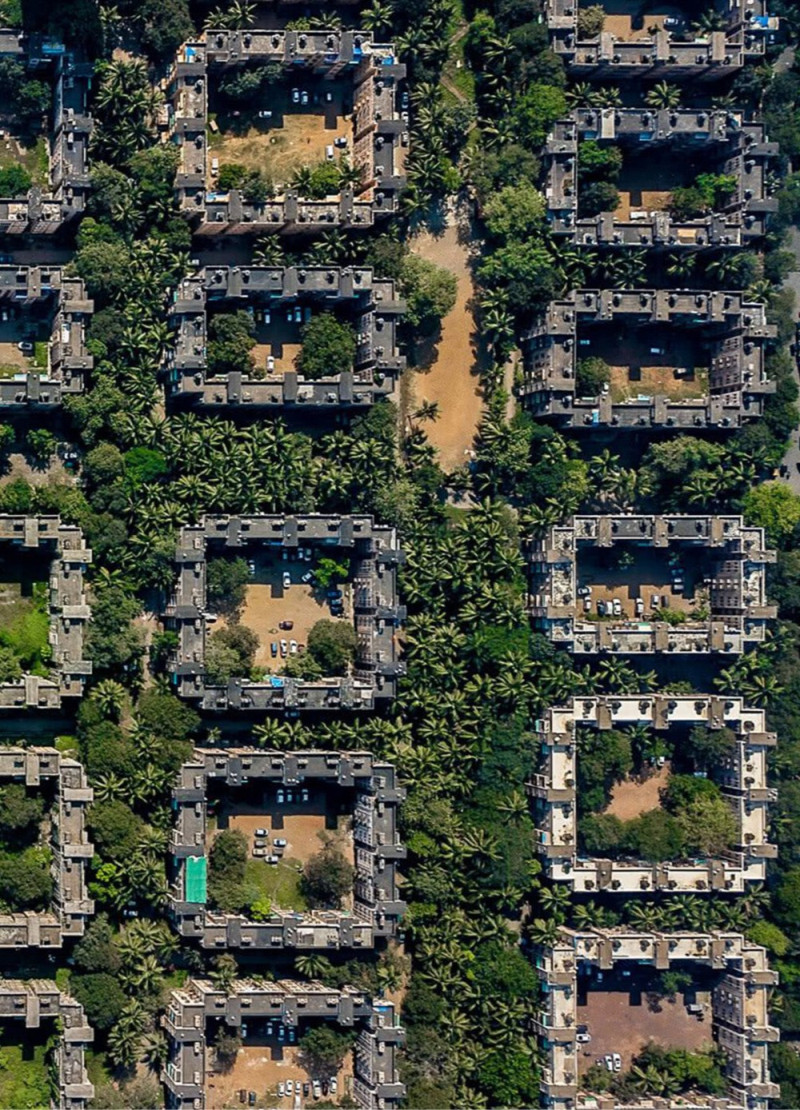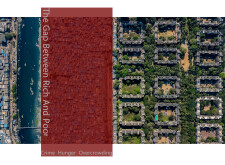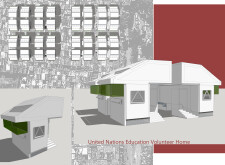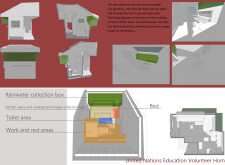5 key facts about this project
### Overview
The United Nations Education Volunteer Home is located in Mumbai, India, a city characterized by its economic dynamism alongside pronounced disparities in living conditions. This project seeks to address urgent housing needs for volunteers dedicated to improving the lives of marginalized communities while adhering to principles of sustainability. The design reflects an intention to engage with the local context and promote social interaction within an area marked by both affluence and poverty.
### Spatial Organization and Functionality
The layout of the home is designed to maximize efficiency and promote community interaction. It features distinct areas for work and relaxation to accommodate the diverse activities of residents. The kitchen serves as a central hub for communal engagement, enhancing the living experience while ensuring essential utility. Strategic placements facilitate effective rainwater collection and storage, underscoring the project’s commitment to resource management.
### Material Selection and Sustainability
Materials chosen for the volunteer home emphasize durability and environmental responsibility. Structural elements utilize concrete to provide stability and thermal mass, while glass components allow for abundant natural light, creating visual connectivity with the environment. The incorporation of a biogas digester supports waste management by converting organic materials into energy, while solar panels fulfill renewable energy needs. Additionally, rainwater harvesting systems are engineered to withstand local climatic conditions, further reinforcing the project's sustainability objectives.























































